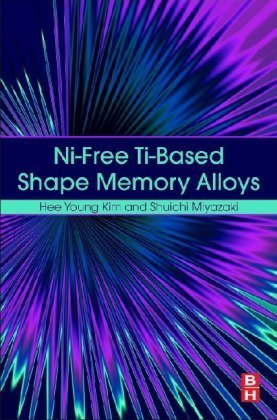Ni-free Ti-based Shape Memory Alloys reviews the fundamental issues of biomedical beta-type Ti base shape memory and superelastic alloys, including martensitic transformation, shape memory and superelastic properties, alloy development, thermomechanical treatment and microstructure control, and biocompatibility. Some unique properties, such as large nonlinear elastic behavior and low Young´s modulus, observed in metastable Ti alloys are discussed on the basis of phase stability. As it is expected that superelastic Ti alloys will further expand the applications of shape memory alloys within the biomedical field, this book provides a comprehensive review of these new findings in Ti-base shape memory and superelastic alloys.


